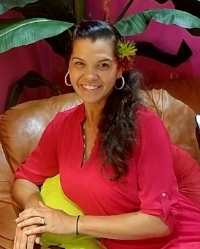— by Joni Marcello
What We Heard - Cheryl Oncea, Publisher of Hawaii Business Magazine
Cheryl Oncea was the featured speaker at the OWL September 2019 luncheon. Cheryl is a true leader in our community, discussing that the path to leadership is to Lead by Example, which she stated is exemplified through encouragement, patience, and balance. Through the video she shared, children provided their perspective of what it means to be a true leader. They defined a leader to be supportive, understanding and allowing their team to make mistakes.
Cheryl’s career started with a visit to Hawaii one summer and it was from here in Hawaii that she launched her 40 years in media. Cheryl began her career in radio, but soon switched to television. It was at KGMB/KHNL that she met one of the many impactful mentors in her career, Rick Blangiardi. Mr. Blangiardi lead his team through team building, setting expectations and striving for goals. However, at this time in her career, Cheryl had the mindset of management avoidance and enjoyed working for herself. Then, KHNL was sold and Cheryl took a leap of faith and free lanced for Tom Moffat.
In as much as she embraced her independence, Cheryl missed working within a team and broadcast. That is when her prayers were answered and she received a call from our fellow OWL member, Mimi Beams who at that time was the General Manager of KSSK. Mimi was Cheryl’s first female direct supervisor. It was through her position of New Business Development, where Cheryl experienced a leadership style that was built upon collaboration, mentoring, teaching of the nuts & bolts of revenue and building on a team culture. Cheryl truly embraced this differentiated way of getting things done and what and how it meant to be successful. Just as Cheryl started feeling successful, there was an ownership change.
This was Cheryl’s signal to move, and she transitioned to KHON, working again with Rick Blangiardi where he emulated the motto from the book, “Good to Great” of getting the right people in the right seats on the bus. Six months in to her account manager position, she was given the opportunity to be promoted to General Sales Manager however, Cheryl felt she was not qualified and turned down the position. Rick continued to encourage her to take the position, telling her she was already doing the job and felt she deserved the title. That is when Cheryl learned what it meant to be a true leader; one needs to be intentional and it is through team building that one needs to be purposeful while being demanding and supportive.
It was from that point forward through her years at KHON, then to Pacific Business News, back to KGMB, then to Hawaii News Now, on to Hawaii Business Magazine that Cheryl developed the following leadership knowledge that she shared with us.
- Does your leader have integrity, trust, and are they able to manage that balance?
- Does he/she recognize that women don’t need to be like men.
- You can be amazing! By acknowledging what you are able to do when the situation calls for it.
- Lead by example.
- Provide a comfort zone for your team where they can fail safely. This will promote creativity and courage to try new things.
- Encourage mentoring.
- Be involved with your team.
- Avoid abusive behavior through calling people out in the group, belittling people by not listening to them, not giving the opportunity to listen and discounting people’s opinion,
- Have integrity.
- Recognize diversity by embracing the multi-generational differences through motivational factors of keeping them inspired.
- Focus on the result and not the task. Be less regimented.
- Break down your communication person to person.





















